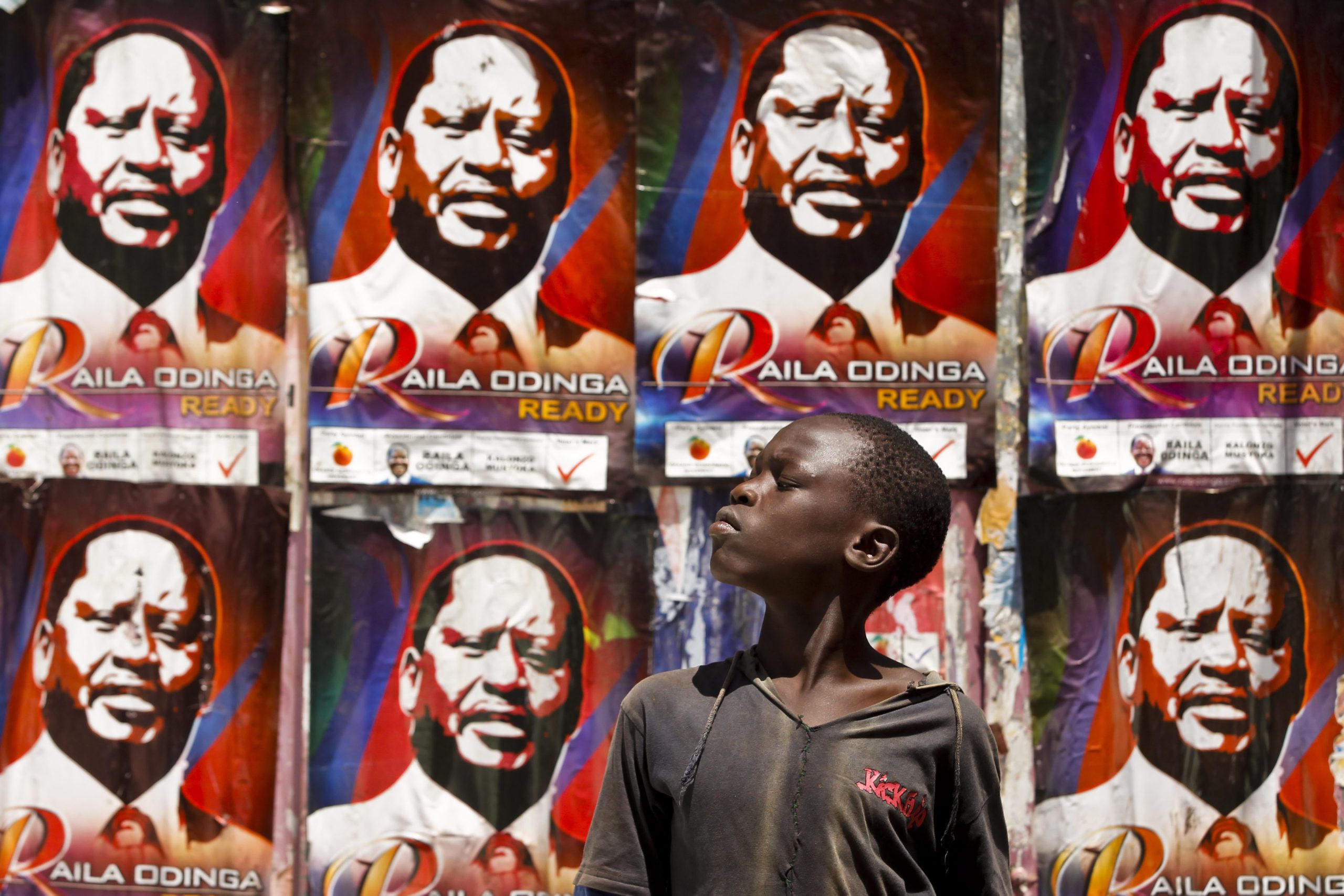
THIRD TIME’S THE CHARM?
Kenya holds fateful presidential election

Kenyans go to the polls today to decide the fate of incumbent President Uhuru Kenyatta. The 55-year-old is fighting for his political life against opposition leader and two-time runner-up Raila Odinga.
On the campaign trail, Mr Kenyatta has touted his government’s achievements, such as expanded internet access and infrastructure investments, including a $3.2 billion Chinese-built railway from Mombasa to Nairobi. However, those same investments have been criticised for running up the country’s debt and accused of being a mechanism for kickbacks and corruption.
It is that very corruption which forms the backbone of Mr Odinga’s campaign. If elected, he pledges to serve only one term and have cabinet members disclose financial interests. Additionally, he represents the Luo ethnic group, who feel they have been too long excluded from the levers of power in Nairobi.
The race is seen as tight, with Kenyatta holding a slight edge in polls. Odinga has threatened to contest a result that has him the loser, especially if the margin is close. The narrower the outcome, the more likely pre-election violence will increase after voting day.
SECRETLY UNCONFIDENT
Jacob Zuma faces anonymous confidence motion

South Africa’s president will seek to hold on to power in the face of a confidence motion to be brought by the opposition today. The motion is a response to Zuma’s March sacking of popular Finance Minister Pravin Gordhan and 783 pending corruption charges.
While Mr Zuma has survived three previous attempts to remove him from office, this one comes with a new wrinkle. In June, South Africa’s top court ruled that the speaker of parliament could hold an anonymous vote, which she has opted for.
The secret ballot provides a shield of anonymity to lawmakers from the ruling African National Congress who do not wish to publicly turn on the party leadership. However, the critical mass of 50 ANC defections (assuming all opposition members vote against Zuma), may still be out of reach.
But a large number of ANC defections could signal that his hold on the party is weakening and hinder plans to install his preferred successor, former African Union Commission chair (and ex-wife) Nkosazana Dlamini-Zuma.
Delve Deeper: South Africa’s failing democracy: the crisis continues
FROZEN SOLID
Russian president visits Abkhazia nine years after war

Today, Vladimir Putin will visit Abkhazia, a Georgian breakaway territory occupied by Russian forces since the Russian-Georgian war, exactly 9 years ago. The Georgian Minister for Reconciliation labeled the visit a “provocation” and raised concerns about annexation by Russia.
Abkhazia, along with South Ossetia—a nearby ethnically Russian territory also claimed by separatists—has developed strong military and economic ties with Russia since the 2008 war. Mr Putin’s last visit in 2013 brought the promise of a full military, recently followed by the creation of a joint Russo-Abkhaz force and common defence space.
Abkhazian separatism has disrupted Georgian territorial legitimacy and limits Georgian Black Sea and heavy land trade. Annexation of small areas across Georgia and other former Soviet republics’ (including Transnistria in Moldova) allow Putin to block a NATO-led “Euro-Atlantic integration.” Continuing Russian financial and military investment of Abkhaz statehood suggests that the region’s frozen conflicts are here to stay.
HAPPENING ELSEWHERE…

Chinese authorities will unveil trade figures for July. The country is expected to have exported $46 billion more than it imported—the second highest figure of 2017. Because China’s economy is highly dependent on exports, trade data has a significant impact on forward-looking growth forecasts, as well as local stock prices. If the July figures miss expectations, expect both these areas to suffer.
The Peruvian government has invited a host of regional countries to discuss the ongoing crisis in Venezuela. Representatives from Argentina, Brazil, Canada and Mexico—among others—are expected to attend. Most Latin American countries have turned on embattled President Maduro in recent months, although socialist leaning governments in Cuba, Bolivia and Ecuador continue to lend their support to Caracas.
US Secretary of State Rex Tillerson will arrive in Bangkok—the most senior American official to visit the country since the military took power in 2014. Bangkok has come under pressure to reduce its trade surplus with the US, which, at $19 billion, puts Thailand on Donald Trump’s list of countries to be investigated over supposed currency manipulation. While Barack Obama was critical of Thailand’s democratic regression post-2014, ties are expected to improve under Trump, who’s less concerned about human rights violations.

